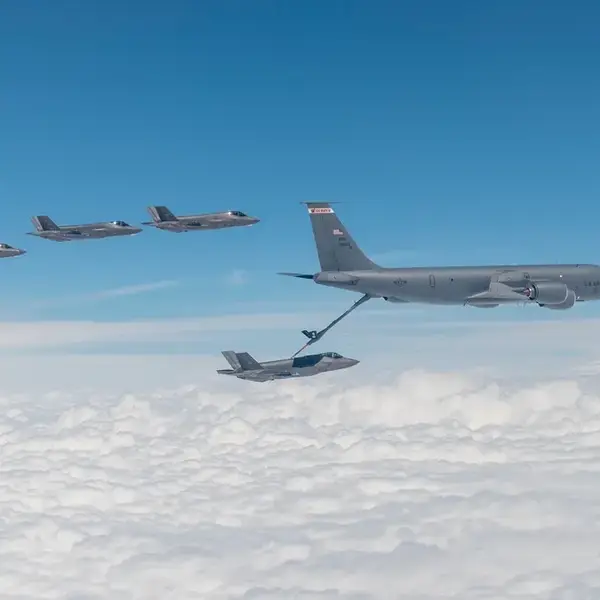A Military Budget on the Wrong Side of History
The Obama administration is scrambling to get on the right side of history. It has a lot of ground to make up. History is mostly judging the United States these days for launching, and now perpetuating, the longest wars in our history.
Initially sold as a war to protect us from (phantom) weapons of mass destruction, the Iraq War is now billed, by those still trying to defend it, as a war for democracy. The Egyptian people have, in a few short weeks, provided us an alternative model of democracy-building. Which one looks better--democracy by military force--or by peaceful citizen movement?
Getting on the right side of history requires picking the right answer--the no-brainer--in actions as well as words. The Obama administration's budget proposal, its first concrete response to Egypt's revolution, fails on this score.
Yes, this budget includes less money for the Iraq War than we're currently spending. But the regular military budget--what we go on spending whether we're fighting wars or not--is four times larger than the war budget, and is still growing. The Pentagon talks about cutting its own budget--$78 billion over five years--and most reporting takes this at face value. It shouldn't. The Pentagon is following its tradition of planning ambitious increases, paring them back, and calling this a cut.
By any normal measure, it's not a cut. Let's agree on a definition: a cut means budgeting less money for next year than we are spending this year. The proposed figure of $553 billion to be spent on the military in 2012, by contrast, is 5 percent higher than was budgeted for 2011. Higher in real terms than any budget of the Bush administration, or any budget since World War II.
Getting on the right side of history requires disinvesting in wars as the tools for democracy and investing in tools for peaceful democratic change instead. What are they? The budget for International Affairs is mostly where such tools--our diplomatic missions, cultural and educational exchanges, economic development aid, support for civil society--are funded. But the second-largest item in this budget funds military aid. And the second-largest recipient of this aid is Egypt.
Getting on the right side of history entails showing our support for the Egyptian miracle by cutting this military aid and shifting our support to initiatives that will actually help Egyptians improve their standard of living. And in keeping with our professed understanding that this is their revolution, not ours, it requires letting the Egyptians decide for themselves what path to economic and political development is right for them.
An Urgent Message From Our Co-Founder
Dear Common Dreams reader, The U.S. is on a fast track to authoritarianism like nothing I've ever seen. Meanwhile, corporate news outlets are utterly capitulating to Trump, twisting their coverage to avoid drawing his ire while lining up to stuff cash in his pockets. That's why I believe that Common Dreams is doing the best and most consequential reporting that we've ever done. Our small but mighty team is a progressive reporting powerhouse, covering the news every day that the corporate media never will. Our mission has always been simple: To inform. To inspire. And to ignite change for the common good. Now here's the key piece that I want all our readers to understand: None of this would be possible without your financial support. That's not just some fundraising cliche. It's the absolute and literal truth. We don't accept corporate advertising and never will. We don't have a paywall because we don't think people should be blocked from critical news based on their ability to pay. Everything we do is funded by the donations of readers like you. Will you donate now to help power the nonprofit, independent reporting of Common Dreams? Thank you for being a vital member of our community. Together, we can keep independent journalism alive when it’s needed most. - Craig Brown, Co-founder |
The Obama administration is scrambling to get on the right side of history. It has a lot of ground to make up. History is mostly judging the United States these days for launching, and now perpetuating, the longest wars in our history.
Initially sold as a war to protect us from (phantom) weapons of mass destruction, the Iraq War is now billed, by those still trying to defend it, as a war for democracy. The Egyptian people have, in a few short weeks, provided us an alternative model of democracy-building. Which one looks better--democracy by military force--or by peaceful citizen movement?
Getting on the right side of history requires picking the right answer--the no-brainer--in actions as well as words. The Obama administration's budget proposal, its first concrete response to Egypt's revolution, fails on this score.
Yes, this budget includes less money for the Iraq War than we're currently spending. But the regular military budget--what we go on spending whether we're fighting wars or not--is four times larger than the war budget, and is still growing. The Pentagon talks about cutting its own budget--$78 billion over five years--and most reporting takes this at face value. It shouldn't. The Pentagon is following its tradition of planning ambitious increases, paring them back, and calling this a cut.
By any normal measure, it's not a cut. Let's agree on a definition: a cut means budgeting less money for next year than we are spending this year. The proposed figure of $553 billion to be spent on the military in 2012, by contrast, is 5 percent higher than was budgeted for 2011. Higher in real terms than any budget of the Bush administration, or any budget since World War II.
Getting on the right side of history requires disinvesting in wars as the tools for democracy and investing in tools for peaceful democratic change instead. What are they? The budget for International Affairs is mostly where such tools--our diplomatic missions, cultural and educational exchanges, economic development aid, support for civil society--are funded. But the second-largest item in this budget funds military aid. And the second-largest recipient of this aid is Egypt.
Getting on the right side of history entails showing our support for the Egyptian miracle by cutting this military aid and shifting our support to initiatives that will actually help Egyptians improve their standard of living. And in keeping with our professed understanding that this is their revolution, not ours, it requires letting the Egyptians decide for themselves what path to economic and political development is right for them.
The Obama administration is scrambling to get on the right side of history. It has a lot of ground to make up. History is mostly judging the United States these days for launching, and now perpetuating, the longest wars in our history.
Initially sold as a war to protect us from (phantom) weapons of mass destruction, the Iraq War is now billed, by those still trying to defend it, as a war for democracy. The Egyptian people have, in a few short weeks, provided us an alternative model of democracy-building. Which one looks better--democracy by military force--or by peaceful citizen movement?
Getting on the right side of history requires picking the right answer--the no-brainer--in actions as well as words. The Obama administration's budget proposal, its first concrete response to Egypt's revolution, fails on this score.
Yes, this budget includes less money for the Iraq War than we're currently spending. But the regular military budget--what we go on spending whether we're fighting wars or not--is four times larger than the war budget, and is still growing. The Pentagon talks about cutting its own budget--$78 billion over five years--and most reporting takes this at face value. It shouldn't. The Pentagon is following its tradition of planning ambitious increases, paring them back, and calling this a cut.
By any normal measure, it's not a cut. Let's agree on a definition: a cut means budgeting less money for next year than we are spending this year. The proposed figure of $553 billion to be spent on the military in 2012, by contrast, is 5 percent higher than was budgeted for 2011. Higher in real terms than any budget of the Bush administration, or any budget since World War II.
Getting on the right side of history requires disinvesting in wars as the tools for democracy and investing in tools for peaceful democratic change instead. What are they? The budget for International Affairs is mostly where such tools--our diplomatic missions, cultural and educational exchanges, economic development aid, support for civil society--are funded. But the second-largest item in this budget funds military aid. And the second-largest recipient of this aid is Egypt.
Getting on the right side of history entails showing our support for the Egyptian miracle by cutting this military aid and shifting our support to initiatives that will actually help Egyptians improve their standard of living. And in keeping with our professed understanding that this is their revolution, not ours, it requires letting the Egyptians decide for themselves what path to economic and political development is right for them.

